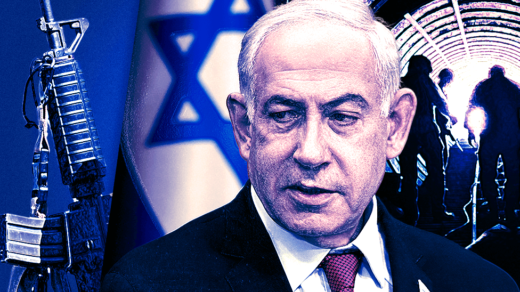This article cannot be viewed unless JavaScript is enabled in your browser. Written by Fergal Keane for BBC News, Jerusalem.
In some regions and times, survival is an achievement for a child, let alone the daily struggle to find food to prevent their family from starving. Every day, 11-year-old Mohammed Zo’rab ventures into the southern Gaza city of Rafah with a large plastic bowl, visiting schools turned refugee centers and roadside camps where people are suffering like his own family but may still have something to spare for a stranger’s child.
Mohammed also visits hospitals where the injured are brought in at all hours and other places where food might be cooking. “When I return home with this food, my family is happy and we eat together,” he shares. “Sometimes I return empty-handed and I feel sad.” Mohammed, the eldest of four children, lives with his parents and siblings in a makeshift shelter made of plastic and tarpaulin.
His father, Khaled, wanders around Rafah seeking odd jobs to earn five shekels (about $1.38; £1.08) to buy diapers for their two-month-old daughter, Howaida. Mohammed is among thousands of children who have become the primary food providers for their families.
Back at home, he gives the bowl of baked beans to his mother, Samar, who shares the food among the other children. Samar is thin and barely eats herself. She reveals, “I have cancer in my bones. I am 31-years-old but look 60. I can’t walk. If I do, I get very tired. My entire body hurts and I need treatment and nutrition.”
Samar and her family relocated to Rafah from their home in Khan Younis further north after being told by the Israel Defense Forces (IDF) that it would be safer. That was three months ago. Since then, the war has steadily approached Rafah. Over 70 people were killed less than two weeks ago when Israel launched a raid to rescue two hostages held by Hamas.
The Zo’rab family’s shelter leaks and the floor floods with rain. Sometimes, baby Howaida has no fresh diapers. Each day brings relentless indignities in a place where 1.5 million people, five times the normal population, are squeezed next to the Egyptian border.
With 85% of Gaza’s population now displaced, the amount of aid reaching the enclave is far from sufficient. The United Nations (UN) states that 500 trucks of aid per day are needed. The daily average has been ninety. The situation in northern Gaza is particularly severe.
The UN has halted food aid movement in northern Gaza due to lack of protection for truck drivers, who have been attacked by criminal gangs and looters. One truck was hit by shellfire, which the UN claims came from an Israeli naval craft. Additionally, the Hamas-run police force in Gaza is no longer willing to escort food trucks due to fear of being shot by the IDF.
In Israel, the majority still support the military conduct of the war. There is no significant opinion supporting an increase in aid for Gaza civilians. In a recent poll, 68% of Jewish respondents opposed transferring humanitarian aid to Gaza while Hamas still held Israeli hostages. By contrast, 85% of Arab Israelis polled were in favor of aid.
In Gaza, charities are using their remaining food resources to provide some assistance. Mahmoud Al-Quishawi of the US-based charity Pious Projects of America was near the boiling pots of beans where Mohammed received food for his family. “We are trying tirelessly every day to extend a helping hand to these people… to tell them ‘we are with you, we won’t let you stand alone’,” says Mr Al-Quishawi.
In northern Gaza, there have been reports of children dying from malnutrition. The British charity Action Aid cited a doctor in northern Gaza as saying that a significant number of children had died. In a video recording, Dr Hussam Abu Safiya – the head of paediatrics at the Kamal Adwan Hospital – said malnutrition was widespread, as well as infections of the digestive system.
In Gaza, civilians are trapped in a war zone, struggling with hunger. Additional reporting by Alice Doyard, Haneen Abdeen, Gidi Kleiman, and Stephanie Fried. Related Topics include the Middle East, Israel-Gaza war, Israel, and Gaza.









